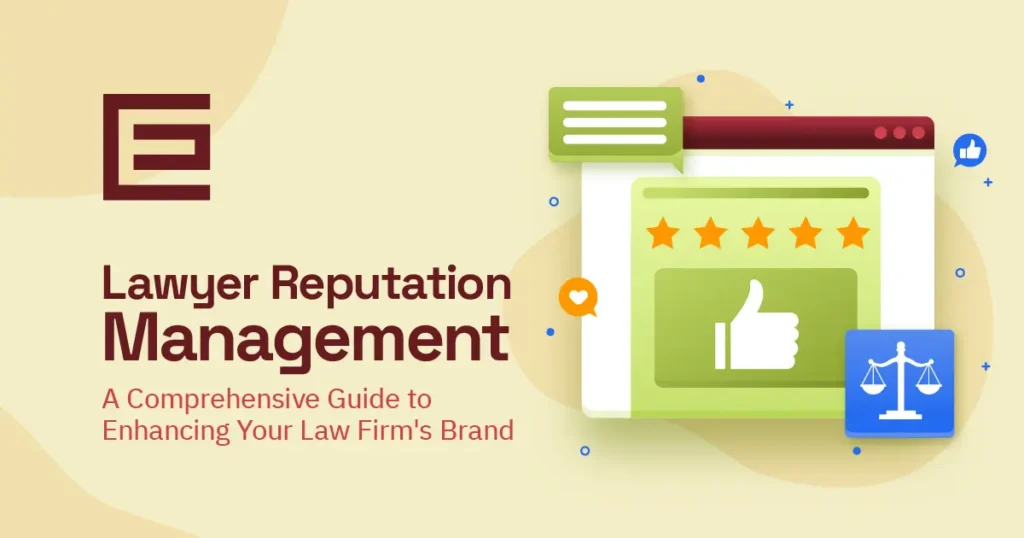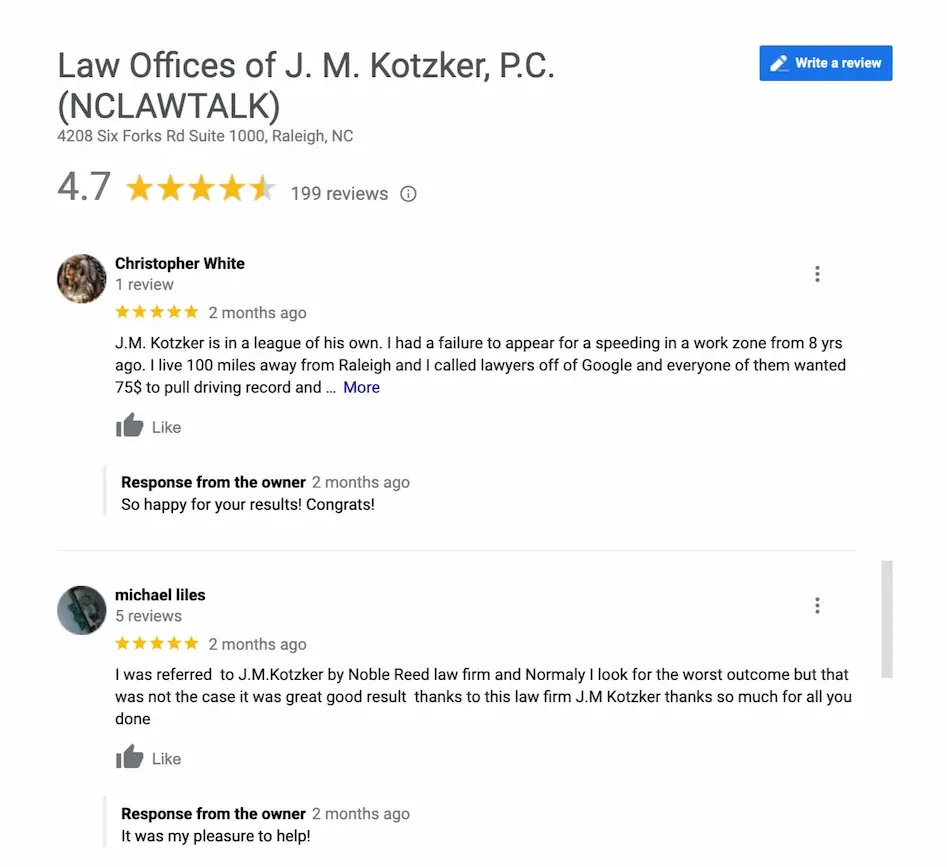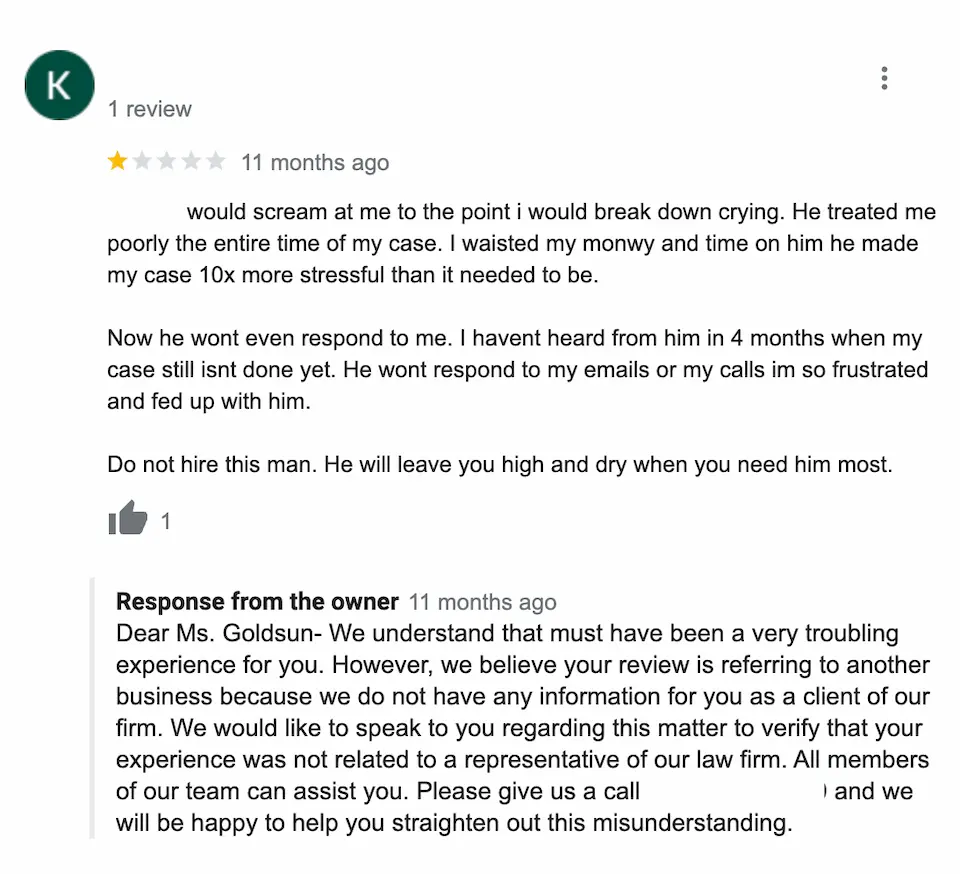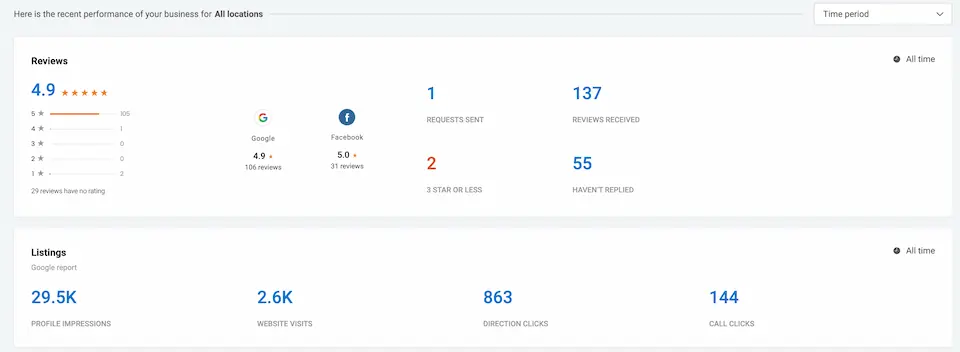
Introduction to Lawyer Reputation Management
In today’s competitive and digitally driven legal landscape, the significance of lawyer reputation management cannot be overstated. This foundational element is vital in establishing and fostering your law firm’s brand, sculpting the perception held by both current and potential clients. Our comprehensive guide offers valuable insights and practical tips, aimed at navigating the complexities of reputation management, empowering your law firm to stand out and succeed in an increasingly crowded legal market.
With a dedicated focus on providing tailored digital marketing solutions for legal practitioners, TheeDigital has established itself as a leader in law firm marketing. Our proficiency in leveraging online platforms, SEO, and innovative marketing strategies has empowered numerous law firms to enhance their online presence, engage with clients more effectively, and stand out in a competitive legal landscape.

Understanding the Basics of Reputation Management for Lawyers
Reputation management for lawyers is an indispensable strategy in today’s digital age, where the first impression is often formed online. At its core, it involves curating a positive image and building a strong, reliable brand presence on the internet. This includes monitoring and responding to online reviews, managing social media profiles, optimizing Google Business Profile listings, and ensuring that the information available online about the lawyer or law firm is accurate and favorable. Platforms like Clio and Birdeye are pivotal in this process, offering comprehensive solutions for managing and enhancing online reputations, thereby aiding lawyers in creating a trustworthy and commendable digital footprint.
Moreover, understanding the basics also necessitates acknowledging the impact of client testimonials, peer endorsements, and third-party reviews on a law firm’s reputation. The way lawyers respond to both positive and negative feedback, engage with clients online, and manage their digital content speaks volumes about their professionalism and approachability.
Thus, a well-rounded grasp of reputation management fundamentals is integral to establishing and maintaining a successful legal practice in the competitive digital landscape. By effectively employing reputation management strategies, lawyers can not only safeguard but also significantly elevate their standing in the online realm, thereby attracting more clients and fostering long-term relationships.
Why Reputation Management for Attorneys is Crucial in Today’s Legal Landscape
In today’s digital-first environment, reputation management for attorneys has never been more crucial. The legal landscape is highly competitive, and prospective clients often turn to online reviews, testimonials, and digital profiles when seeking representation. The way attorneys manage their online reputation can significantly influence client trust and ultimately, the success of the practice.
Furthermore, a well-maintained reputation can differentiate a firm in a saturated market, driving client acquisition and retention.
Conversely, neglecting online reputation can have detrimental effects, with negative reviews and mismanaged interactions potentially leading to a loss of business and credibility. Hence, proactive reputation management is not just about mitigating risks but is a strategic imperative for growth and sustainability in the contemporary legal landscape.

Evaluating Reviews: The Pillar of Reputation
Evaluating reviews stands as a cornerstone in the structure of robust reputation management. In a world where clients have the power to share their experiences and opinions at the click of a button, every review holds the potential to shape public perception. Each piece of feedback, be it positive or negative, requires thorough evaluation and thoughtful response.
This process is not just about addressing client concerns but also about demonstrating the law firm’s commitment to client satisfaction and continuous improvement. Positive reviews act as a testament to a firm’s competence and professionalism, enhancing credibility, while constructive criticism offers invaluable insights for refining services and client interactions.
The nuanced art of evaluating and managing reviews, therefore, plays a pivotal role in building and sustaining a law firm’s reputation, reflecting its values, and showcasing its dedication to delivering exceptional legal services.
How Reviews Can Make or Break a Legal Brand
In the interconnected world of online platforms, reviews wield a significant influence, capable of making or breaking a legal brand. Positive reviews serve as powerful endorsements, boosting a law firm’s image, reinforcing its credibility, and fostering trust among prospective clients. They act as social proof of a firm’s capabilities and commitment to client satisfaction, influencing decision-making processes and driving client acquisition. On the flip side, negative reviews, if not addressed promptly and appropriately, can tarnish a firm’s reputation, erode trust, and deter potential clients.
Moreover, reviews contribute to a firm’s online visibility. Search engines like Google factor in the quantity and quality of reviews when ranking websites, meaning positive reviews can enhance a firm’s online presence and accessibility. Hence, managing reviews, both positive and negative, is not merely about maintaining a favorable image; it is about leveraging them as strategic assets to build a resilient and reputable legal brand in a competitive digital landscape. Balancing the scales and navigating the intricacies of client feedback is essential in ensuring that reviews serve as a building block, rather than a stumbling block, for a law firm’s success.

Importance of Addressing Negative Reviews Promptly
Addressing negative reviews with promptness and professionalism is a critical component of effective reputation management for attorneys.
In a digital landscape where opinions are freely shared, negative reviews can quickly gain traction and impact a law firm’s image. Responding promptly signals to both the reviewer and prospective clients that the firm values feedback and is committed to resolving issues, thereby mitigating potential damage to the firm’s reputation.
Swift and thoughtful responses to negative feedback can transform challenges into opportunities—showcasing the firm’s dedication to client satisfaction and service improvement. It demonstrates transparency, accountability, and a willingness to learn and adapt, which can enhance the firm’s credibility and foster trust among existing and potential clients.
Conversely, delayed or inadequate responses can exacerbate issues, leaving clients feeling unheard and undervalued, and potentially deterring others. Therefore, recognizing and addressing concerns in real time is not just about damage control; it is a strategic approach to building relationships, improving services, and strengthening the foundation of a law firm’s reputation in the competitive legal market.
Encouraging Satisfied Clients to Leave Positive Reviews
Encouraging satisfied clients to share their positive experiences in the form of online reviews is a strategic step in enhancing a law firm’s digital presence and reputation. Positive reviews are instrumental in building trust, validating the firm’s expertise, and attracting new clients. They serve as social proof of the quality and reliability of the legal services offered, influencing the decision-making process of potential clients seeking legal representation.
Platforms like Clio and Birdeye can be leveraged effectively to facilitate the acquisition of positive reviews. Clio, a comprehensive legal practice management software, offers features that enable law firms to maintain strong relationships with their clients, fostering satisfaction and encouraging clients to share their positive experiences. It aids in streamlining communication and ensuring clients feel valued and heard, creating an environment conducive to receiving positive feedback.
Birdeye, on the other hand, is a reputation management platform that specializes in helping businesses, including law firms, generate and manage reviews. It offers automated review requests, making it easier for satisfied clients to share their experiences and for law firms to showcase positive testimonials. Birdeye also provides insights and analytics on reviews, enabling law firms to understand client sentiment and optimize their services accordingly.
By utilizing tools like Clio and Birdeye, law firms can actively encourage satisfied clients to contribute positive reviews, thus enhancing their online reputation and standing out in the competitive legal landscape. In doing so, they not only amplify the voices of contented clients but also fortify their legal brand through authentic and favorable client testimonials.
Strategic Law Firm Reputation Management
Strategic Law Firm Reputation Management is pivotal for maintaining a strong presence in the legal sector. This strategy encompasses building a robust brand, enhancing online visibility, and consistently demonstrating the firm’s commitment to legal excellence.
- Proactive Approach:
- Anticipating challenges and actively seeking client feedback is crucial. This fosters trust and loyalty, contributing to a stronger reputation.
- Balancing Reviews:
- Managing both positive and negative feedback transparently builds a balanced and authentic online profile, essential for earning trust and showcasing a commitment to improvement.
- Enhancing Online Visibility:
- Utilizing SEO, maintaining a strong social media presence, and optimizing Google Business Profiles are fundamental for increasing accessibility and fostering positive client interactions.
- Showcasing Expertise:
- Sharing success stories and insights positions the firm as an authority, attracting clients looking for specialized legal services.
- Leveraging Technology:
- Tools like Clio and Birdeye can streamline reputation management, automating review requests and providing valuable insights for enhancing service quality.
- Client-Centric Approach:
- Prioritizing client needs leads to higher satisfaction and more positive reviews, contributing to a strong reputation.
- Ethical Conduct and Social Responsibility:
- Upholding ethical standards and engaging in responsible practices enhances the firm’s image, attracting clients who value integrity and social justice.
Adopting a strategic approach to reputation management enables law firms to build and maintain a positive reputation, drive success, and stand out in the competitive legal industry.
Implementing Proactive Law Firm Reputation Management Strategies
Implementing proactive strategies in law firm reputation management is vital for establishing trust and credibility in the legal community. One of the cornerstones of a proactive approach is regular engagement with clients and the broader online audience. By actively seeking feedback, addressing client concerns promptly, and showcasing positive testimonials, law firms can build a resilient and authentic online reputation. Utilizing platforms like Clio can significantly aid in managing client relationships and ensuring consistent and quality client interactions, fostering a positive brand image.
Furthermore, staying ahead of the curve by monitoring online reviews and social media mentions allows law firms to address any negative sentiment swiftly and effectively. This involves acknowledging mistakes, rectifying issues, and demonstrating a commitment to client satisfaction.
Balancing Reviews for Effective Law Firm Marketing
For law firms aiming to craft a sterling reputation, balancing both positive and negative reviews is integral. This balancing act is not just about damage control; it’s about showcasing a law firm’s commitment to client satisfaction and continual improvement. Birdeye stands as an invaluable asset in this endeavor, offering a suite of features designed to facilitate comprehensive review management. It allows law firms to easily monitor, respond to, and analyze reviews from across the web, ensuring that each piece of feedback is acknowledged and addressed.

Birdeye’s real-time alerts notify law firms immediately when a new review is posted, enabling a prompt response to client feedback—be it positive or constructive criticism. The platform also features robust analytics tools, providing insights into common client concerns and areas for improvement. By leveraging Birdeye, law firms can maintain a balanced and authentic online presence, turning client feedback into a powerful marketing tool. This approach not only helps attract new clients but also fosters loyalty among existing ones, as they witness the firm’s dedication to quality service and client satisfaction.
Reputation Management Essentials
Navigating the realm of reputation management requires a blend of proactive strategies, responsive solutions, and an unwavering commitment to client satisfaction. Below are some essentials every law firm should integrate into their reputation management blueprint.
Client Engagement:
Regularly engage with clients through various channels. Prompt responses to inquiries, addressing concerns, and acknowledging feedback highlight the firm’s dedication to client satisfaction, thereby enhancing its reputation.
Digital Presence:
Maintaining a robust online presence across various platforms is indispensable. Regularly update the firm’s website, blog, and social media accounts with relevant content to demonstrate expertise and stay engaged with the audience.
Review Management:
Actively manage online reviews. Respond promptly and professionally to both positive and negative feedback, showcasing transparency and a commitment to continual improvement.
Transparency and Honesty:
Uphold a high level of transparency and honesty in all dealings. Clearly communicate processes, fees, and expectations, thereby building trust and bolstering the firm’s credibility.
Branding:
Consistently reinforce the firm’s brand values and mission across all communications. A strong brand is synonymous with reliability and quality, key components in building a positive reputation.
Client Testimonials:
Showcase positive client testimonials and success stories. This serves as social proof of the firm’s expertise and commitment to achieving favorable outcomes for clients.
SEO and Online Visibility:
Invest in SEO strategies to enhance online visibility. A prominent online presence increases accessibility and serves as a platform to showcase the firm’s strengths and achievements.
Community Engagement:
Engage with the local community through charitable initiatives, sponsorships, and pro bono services. This fosters goodwill and positions the firm as a responsible and caring community member.
Monitoring and Adapting:
Regularly monitor the firm’s online reputation and adapt strategies accordingly. The digital landscape is ever-evolving, and staying adaptable is key to managing and enhancing the firm’s reputation effectively.
By incorporating these essentials, law firms can construct a solid foundation for reputation management, ensuring they not only weather the storm of negative publicity but also flourish in building lasting, positive relationships with clients and the community at large.
Advanced Techniques for Managing Reputation
In a digital era where online presence can significantly impact a law firm’s success, embracing advanced reputation management techniques is indispensable. Moving beyond the fundamentals, these sophisticated strategies are designed to address the unique challenges and opportunities presented by the ever-evolving online landscape. They empower law firms to proactively shape their digital image, effectively respond to client feedback, and distinguish themselves in a competitive legal market. In this section, we’ll explore a variety of advanced techniques that can elevate a firm’s reputation management efforts to new heights, ensuring a resilient and positive brand presence in the online realm.
Leveraging Law Firm Marketing for Improved Reputation
Law firms looking to enhance their reputation need to leverage advanced marketing strategies. These techniques not only elevate the firm’s visibility but also position it as an authority in the legal field, fostering trust and credibility among prospective clients and peers. Here are several advanced techniques involved in leveraging law firm marketing for improved reputation:
- Content Marketing:
- Develop and disseminate high-quality, informative, and engaging content across various platforms. Content marketing establishes the firm’s expertise, addresses client concerns, and improves SEO, thereby boosting the firm’s online reputation.
- SEO Optimization:
- Implement advanced SEO strategies to ensure the firm’s website ranks high on search engine results. This increased visibility can lead to higher traffic, more client inquiries, and an enhanced reputation.
- Social Media Engagement:
- Utilize social media platforms strategically to engage with the audience, share insights, and respond to queries and feedback. An active and positive social media presence contributes to a favorable online reputation.
- Online Reviews Management:
- Employ advanced tools and platforms for managing online reviews. Responding promptly to both positive and negative reviews demonstrates the firm’s commitment to client satisfaction and transparency.
- Public Relations (PR):
- Engage in PR activities such as press releases, community involvement, and media appearances to control the narrative around the firm and highlight its achievements and contributions to society.
- Email Marketing:
- Utilize personalized and targeted email campaigns to stay connected with current and former clients, share valuable content, and gather feedback, contributing to a strong and positive reputation.
- Webinars and Online Events:
- Host webinars, workshops, and online events to share legal knowledge, interact with the audience, and showcase the firm’s expertise, thereby building a positive reputation in the legal community.
- Client Testimonials and Case Studies:
- Showcase client testimonials and detailed case studies on the firm’s website and social media. These act as social proof of the firm’s capabilities and commitment to achieving positive outcomes for clients.
- Brand Consistency:
- Ensure brand consistency across all marketing channels. A cohesive brand image, message, and visual identity reinforce the firm’s professionalism and reliability.
By incorporating these advanced techniques in their marketing efforts, law firms can significantly improve their reputation, attract more clients, and set themselves apart in the highly competitive legal landscape.
Creating a Robust Online Profile for Enhanced Layer Reputation
Cultivating a robust online profile is pivotal for lawyers aiming to amplify their reputation and instill confidence in potential clients. Advanced techniques to achieve this encompass a myriad of digital touchpoints. First and foremost, maintaining an updated, professional website with comprehensive information about expertise, accomplishments, and client testimonials serves as a cornerstone.
Equally essential is a strong presence on legal directories and review sites, ensuring accurate and flattering information is easily accessible. Leveraging SEO strategies optimizes online visibility, making it easier for prospective clients to find and assess the attorney’s credentials. Regularly contributing to legal forums, blogs, and social media, not only showcases expertise but also fosters engagement and community trust. Additionally, managing and promptly responding to online reviews, both positive and negative, reflects a commitment to client satisfaction. Incorporating these advanced techniques helps attorneys build a fortified online profile, effectively enhancing their reputation in the digital realm.
Conclusion: The Road Ahead for Reputation Management
As we navigate further into the digital era, the importance of reputation management for lawyers and law firms becomes increasingly paramount. The road ahead is paved with opportunities for legal professionals to harness the power of online platforms, advanced marketing strategies, and innovative tools to sculpt and maintain a pristine reputation. With the prevalence of online interactions and reviews, attorneys must stay vigilant, proactively addressing client feedback and fostering positive relationships.
The integration of tools like Clio and Birdeye will continue to be instrumental in managing client interactions and accumulating positive reviews. By embracing advanced techniques in reputation management and leveraging the multifaceted digital landscape, lawyers can differentiate themselves, build trust, and ultimately, drive the success of their practice. The journey may be challenging, but the rewards of a well-managed reputation are invaluable in the competitive legal arena. The forward-thinking attorney will recognize the evolving dynamics and adapt, ensuring a resilient and flourishing presence in the online world.
Final Thoughts on Reputation Management for Lawyers
Reputation management for lawyers is no longer a supplementary strategy—it is a cornerstone of legal practice in the modern digital landscape. With clients increasingly relying on online reviews and digital footprints to make informed decisions, maintaining a positive and robust online reputation is non-negotiable. It demands a proactive approach, where lawyers are not just reacting to the digital conversation around them, but actively shaping it through consistent engagement, responsiveness, and showcasing their expertise and success stories.
Embracing tools and platforms like Clio and Birdeye has become essential in this ongoing effort, offering efficient ways to manage interactions and gather positive feedback. These technological assets, coupled with a commitment to excellence in service, form a powerful combination that fosters trust and credibility.
In conclusion, the legal profession’s future is intrinsically tied to the digital realm, where reputation is fluid and constantly evolving. Lawyers and law firms who invest in managing their reputation with diligence, adaptability, and a focus on client satisfaction will not only survive but thrive in this ever-changing environment. By acknowledging the significance of reputation management and integrating it into the core of their practice, lawyers are well-positioned to secure a prosperous and respected future in the legal field.
Looking to the Future: Adapting Reputation Management Strategies for Legal Success
Peering into the future, the legal landscape continues to be shaped and reshaped by the digital revolution, requiring adaptive and forward-thinking reputation management strategies for sustained success. Lawyers and law firms are confronted with a dynamic online ecosystem where client opinions, reviews, and digital interactions can significantly influence a practice’s reputation and, consequently, its bottom line. It is imperative that legal professionals stay ahead of the curve, integrating innovative solutions and adapting to the evolving needs and behaviors of their digitally savvy clientele.
Tools like Clio and Birdeye are becoming indispensable in this context, providing the means to streamline client interactions, manage reviews, and ultimately enhance online reputation. These platforms, along with a commitment to ethical practice and client-centric service, form the backbone of a resilient reputation management strategy.
Looking To Take Your Law Firm’s Marketing and Reputation to the Next Level?
Crafting a solid online presence and maintaining a sterling reputation in the digital age are paramount for any law firm aiming for success. Recognizing this, TheeDigital’s Marketing Team stands as a beacon of expertise and innovation in the field. With a deep understanding of the unique needs and challenges of law firm marketing, TheeDigital is poised to assist in building and implementing a robust and profitable digital marketing and reputation management strategy tailored to your firm’s specific goals.
Contact TheeDigital today at 919-341-8901 or schedule a consultation with one of our marketing specialists today.
Check out Travis’ latest blogs!
Tags: Digital Marketing • Legal Marketing • Our Favorites







